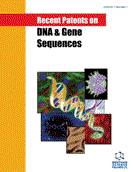Abstract
Gene therapy is a medical technique intended for treatment of disorders caused by defective, missing, or overexpressing genes. Efficient delivery vectors are necessary in order to transport genetic material to the target cells. Such vectors include viral and non-viral carriers. Viral vectors transfect cells efficiently, however risks associated with their use have limited their clinical applications. Nonviral delivery systems are safer, easier to prepare, more versatile and cost effective. However, their transfection efficiency still falls behind that of the viral vectors. Considerable research into nonviral gene delivery has been conducted in the last two decades on synthetic soft materials such as cationic lipids, polymers, surfactants, and dendrimers as prospective nucleotide carriers for gene delivery. So far, cationic lipids are the most widely used constituents of nonviral gene carriers, with multiple strategies employed to improve their in vitro and in vivo transfection. Efforts in synthesizing new cationic lipids were not fully successful in closing the gap between the efficiency of the viral vectors and that of binary cationic lipid/DNA complexes. Current efforts for improving lipofection efficiency are focused on the development of multicomponent carriers including cationic lipids as key constituents. This review summarizes the recent patents on new cationic lipids as well as on multicomponent formulations enhancing their efficiency as nucleotide carriers.
Keywords: Cationic lipid, helper lipid, targeting ligand, fusogenic, polynucleotide, lipoplex, Polyanionic DNA, cholestrol moiety, guanidine and imidazole, polyamine derivative, zwittor ion, alkyl chains, oligonucleotide, cationic sterols, amphoteric liposomes
 30
30

